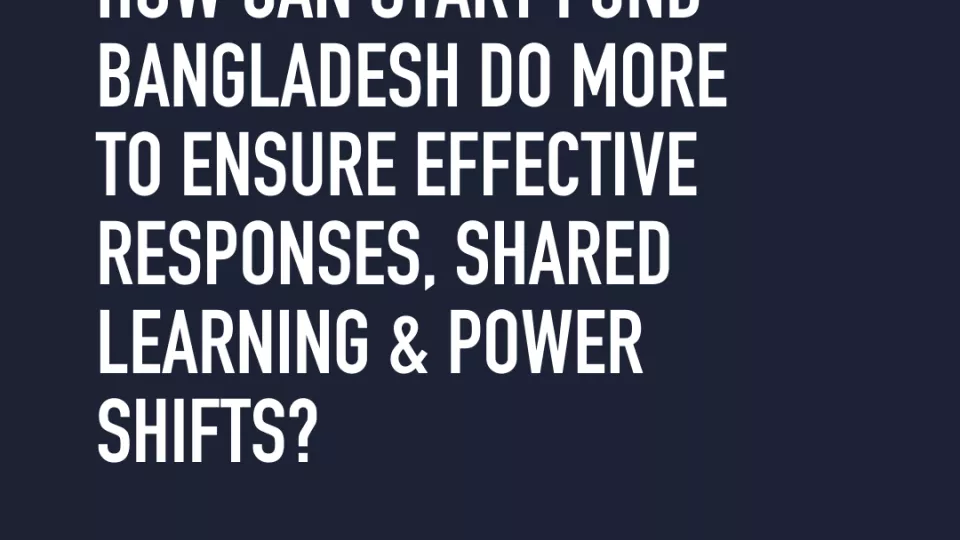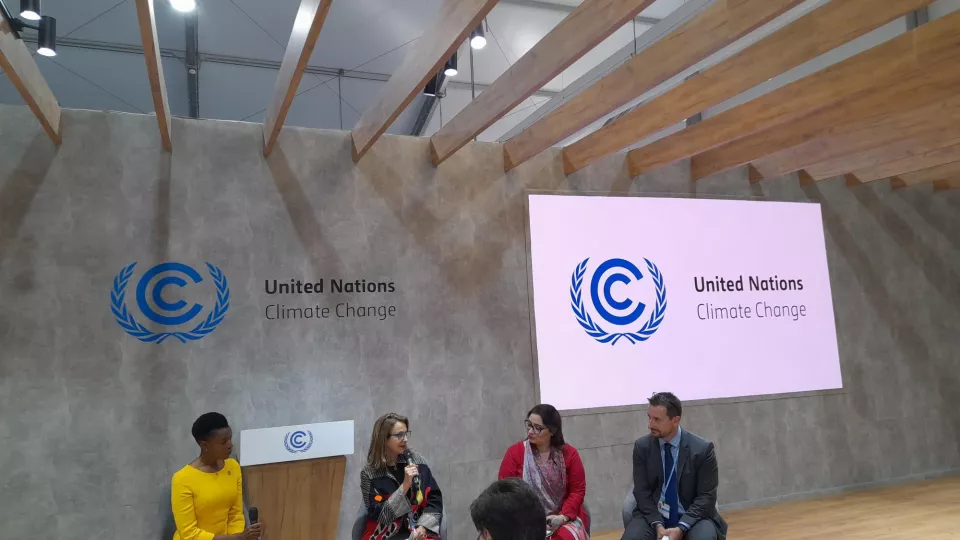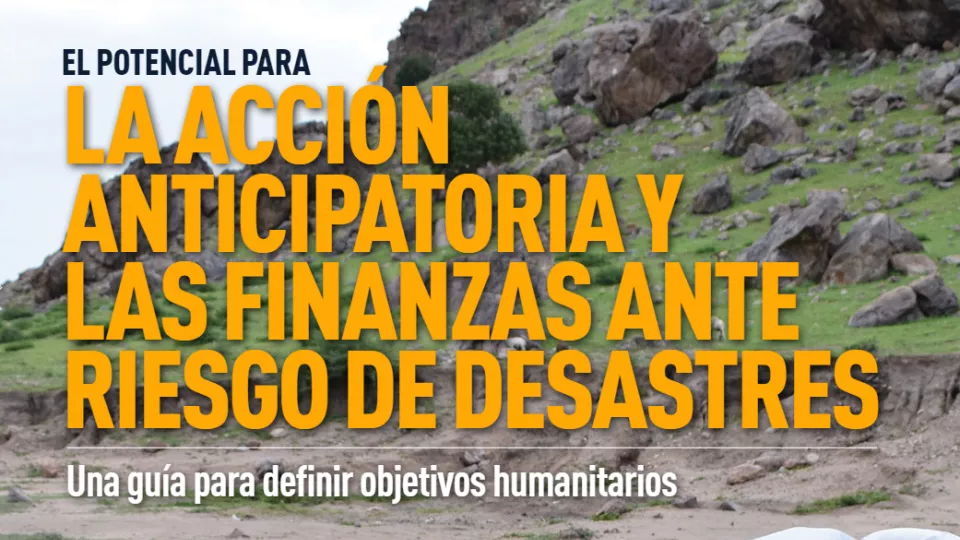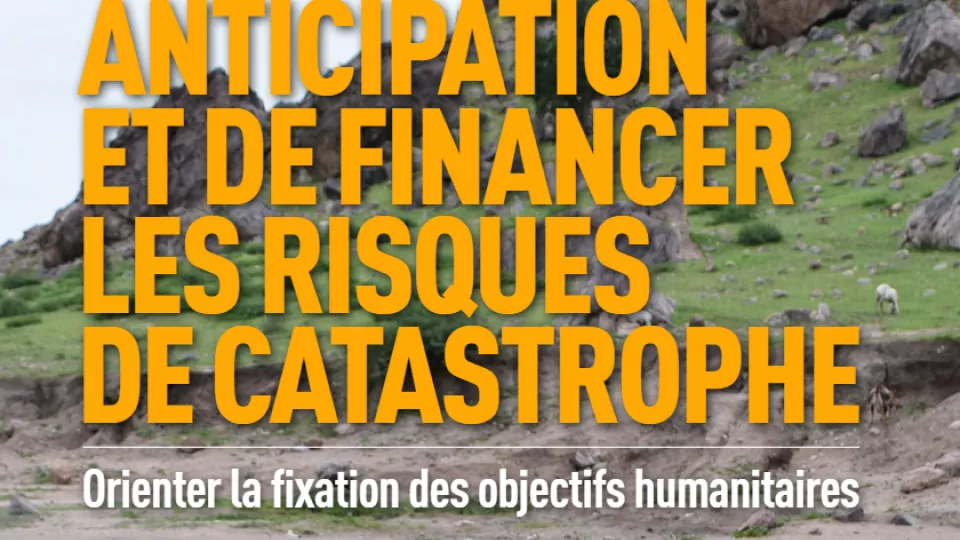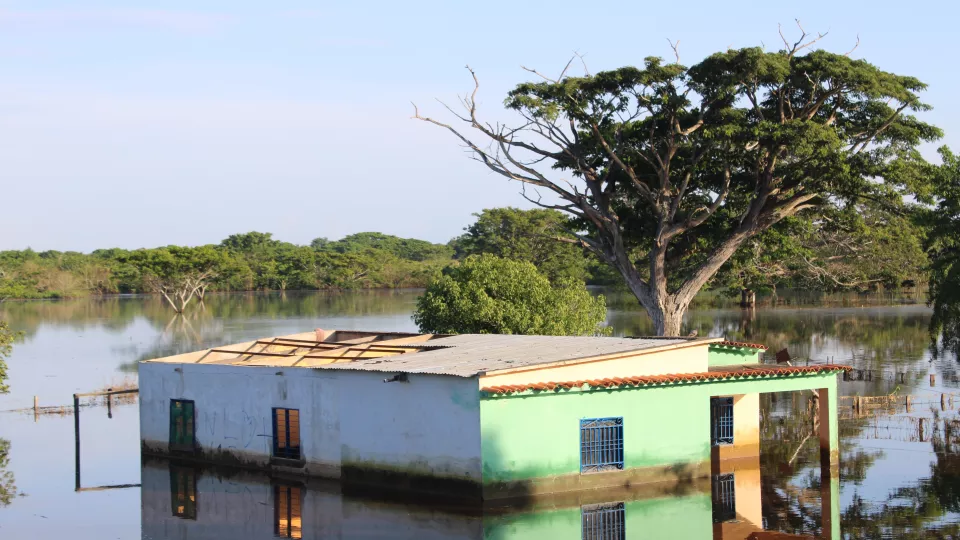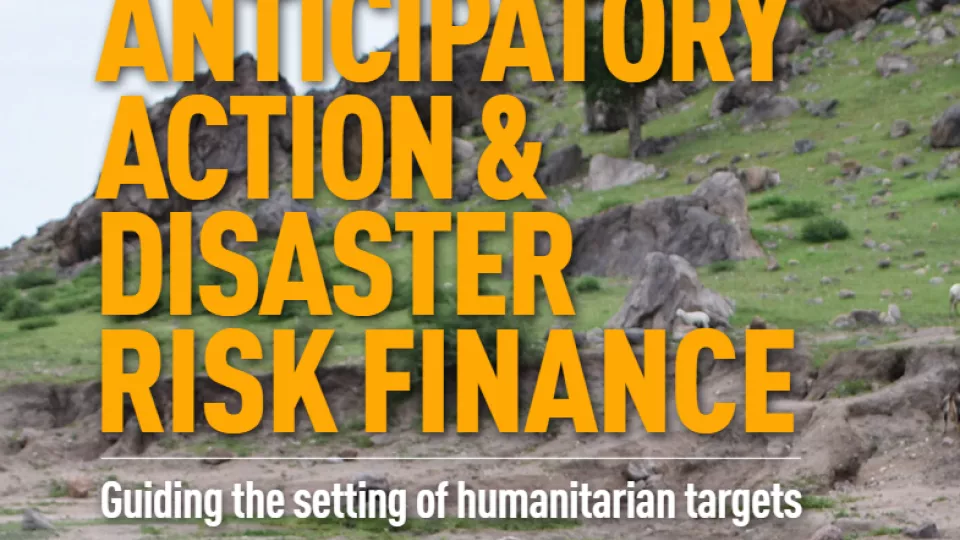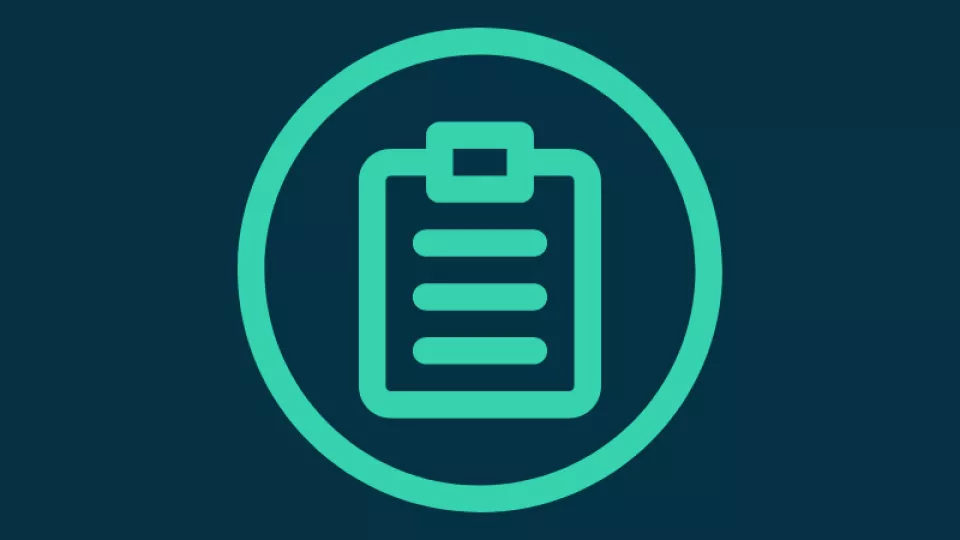Cada vez hay más interés por una acción humanitaria proactiva y basada en los riesgos, como medio para prestar una asistencia más oportuna, eficiente y digna a las comunidades en riesgo de crisis. Los pedidos de ampliar estos enfoques resaltaron la insuficiencia de los niveles actuales de financiación para las acciones anticipatorias y para la financiación preestablecida para crisis, así como la importancia de establecer objetivos con los que medir los avances. Sin embargo, hay gran variación entre estos objetivos, y en términos de lo que constituye una ambición realista. Dentro de las crisis que reciben asistencia internacional, ¿cuál es el alcance para establecer planes, financiación y, cuando sea posible, implementar acciones mitigadoras antes del propio evento?
El desafío para la comunidad humanitaria consiste en aprovechar la ciencia y la tecnología existentes para permitirnos predecir y prepararnos antes de que aumenten los riesgos de crisis, al tiempo que conservamos la capacidad de responder a acontecimientos muy complejos, interconectados y/o sin precedentes.
Este documento pretende ofrecer un marco más claro para entender qué puede anticiparse y en qué medida. El análisis de este informe muestra que hay grandes oportunidades dentro de la carga de casos humanitarios para aprovechar los sistemas de información de riesgos operativos existentes (el pan comido), así como un potencial más amplio con respecto a los riesgos de crisis que aún no cubren los sistemas operativos actuales. Además, el informe reconoce que existen límites en el grado en que se pueden predecir las crisis y en que se puede la financiación preestablecida. Esto refuerza la necesidad de que la acción anticipada y las medidas de financiación del riesgo de desastres se complementen con otros mecanismos de respuesta durante y después de una situación de crisis y se adapten a las crisis y contextos individuales.
Lea el informe completo aquí
ENG
FR
ES
